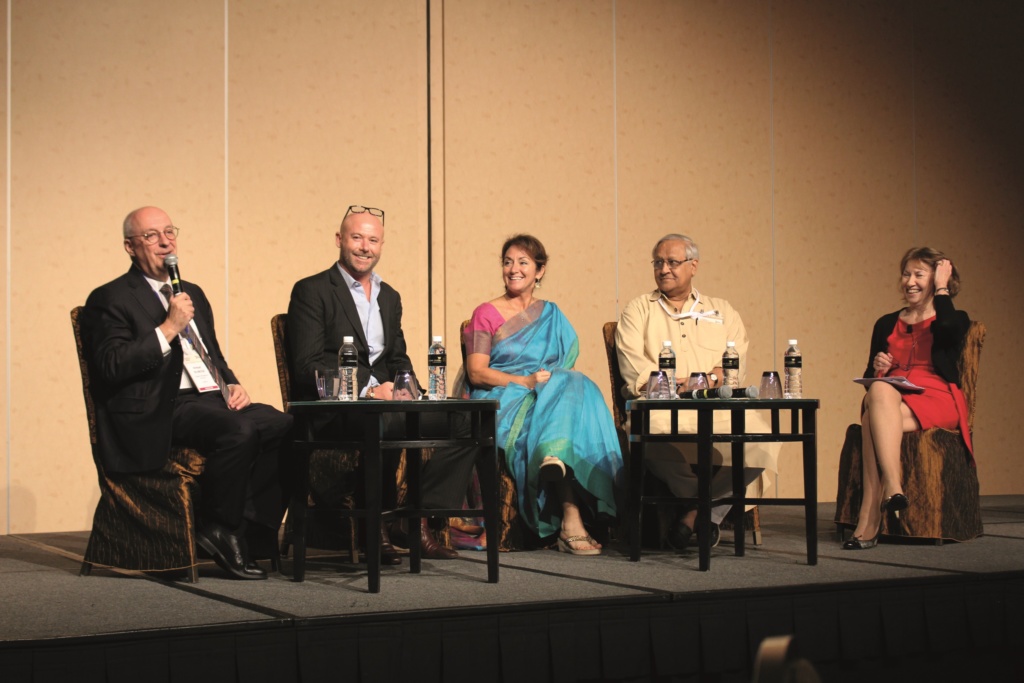Learning Environments Australasia’s 17th Regional Conference kicked off in Singapore on July 12th with a bang of drums, dancing and an enchanting lion dance. It was a clear indication of the extraordinary speakers and workshops to come over the following two and a half days. As delegates, we were continually tested with dramatic new theories (and practices!) of technology, artificial intelligence, the role of education and thoughtful, inclusive design principles.
Illuminating the need for agility in renovation and reuse of learning spaces, Permanent Secretary for Education Chan Lai Fung, explained the evolution of Singaporean learning spaces from the 1960s and 70s when a new school was being built every month, through the years of renovations in the 1990s to increase flexibility of space, to a current understanding of the individualised requirements of schools to allow for diversity and collaboration.

The first keynote was a presentation on The Barefoot College by Meagan Fallone and Bunker Roy. Working with poor communities initially in India, and now reaching communities in more than 75 countries in the world, the Barefoot College aims to invest in human potential currently limited by opportunities and access to learning spaces and programmes.
One of their most influential programmes is the solar engineering programme. Each year, 40 illiterate or semi-literate women between the ages of 35 and 50 converge from ten different countries and learn solar engineering. Returning to their remote regional villages with the skills to bring power and electricity to places that have neither, the programme is not only a practical improvement to village life, but the empowerment of mothers and grandmothers within their societies with the dignity of fair work and skills-based knowledge, is an immeasurable success.
Working within communities with no access to printed news or radios, no light for studying and with students that cannot start their learning day until they finish work, the Barefoot College are redesigning the purpose of education. It is always an uplifting experience to be challenged with narratives from outside your comfort zone, and the stories related from both Ms Fallone and Mr Roy, certainly did that for me.
Peter Kenny from Reach Education followed up with an insightful take on his experience with Syrian refugees through various UNICEF programmes. Sharing his research on early childhood education brokering the links between community and early years education, he commenced with the statement ‘A Society’s well-being can be attributed to their collective experience in early childhood.’ Mr Kenny reiterated the importance of early years education, as 90% of a child’s critical development happens within their first five years. Working with numerous communities to develop schools that provide the education of everyday life, Mr Kenny works within the digital learning sphere to innovate and improve education by linking communities.